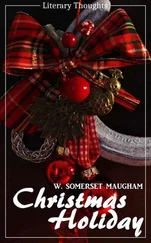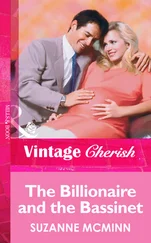Somerset Maugham - The Moon and Sixpence
Здесь есть возможность читать онлайн «Somerset Maugham - The Moon and Sixpence» весь текст электронной книги совершенно бесплатно (целиком полную версию без сокращений). В некоторых случаях можно слушать аудио, скачать через торрент в формате fb2 и присутствует краткое содержание. Жанр: Классическая проза, на английском языке. Описание произведения, (предисловие) а так же отзывы посетителей доступны на портале библиотеки ЛибКат.
- Название:The Moon and Sixpence
- Автор:
- Жанр:
- Год:неизвестен
- ISBN:нет данных
- Рейтинг книги:5 / 5. Голосов: 1
-
Избранное:Добавить в избранное
- Отзывы:
-
Ваша оценка:
- 100
- 1
- 2
- 3
- 4
- 5
The Moon and Sixpence: краткое содержание, описание и аннотация
Предлагаем к чтению аннотацию, описание, краткое содержание или предисловие (зависит от того, что написал сам автор книги «The Moon and Sixpence»). Если вы не нашли необходимую информацию о книге — напишите в комментариях, мы постараемся отыскать её.
The Moon and Sixpence — читать онлайн бесплатно полную книгу (весь текст) целиком
Ниже представлен текст книги, разбитый по страницам. Система сохранения места последней прочитанной страницы, позволяет с удобством читать онлайн бесплатно книгу «The Moon and Sixpence», без необходимости каждый раз заново искать на чём Вы остановились. Поставьте закладку, и сможете в любой момент перейти на страницу, на которой закончили чтение.
Интервал:
Закладка:
"Is that what you're doing now?" I asked.
"Yes. I can get my models here just as well as in Rome."
"Don't you think it's very beautiful?" said Mrs. Stroeve.
"This foolish wife of mine thinks I'm a great artist," said he.
His apologetic laugh did not disguise the pleasure that he felt. His eyes lingered on his picture. It was strange that his critical sense, so accurate and unconventional when he dealt with the work of others, should be satisfied in himself with what was hackneyed and vulgar beyond belief.
"Show him some more of your pictures," she said.
"Shall I?"
Though he had suffered so much from the ridicule of his friends, Dirk Stroeve, eager for praise and naively self-satisfied, could never resist displaying his work. He brought out a picture of two curly-headed Italian urchins playing marbles.
"Aren't they sweet?" said Mrs. Stroeve.
And then he showed me more. I discovered that in Paris he had been painting just the same stale, obviously picturesque things that he had painted for years in Rome. It was all false, insincere, shoddy; and yet no one was more honest, sincere, and frank than Dirk Stroeve. Who could resolve the contradiction?
I do not know what put it into my head to ask:
"I say, have you by any chance run across a painter called Charles Strickland?"
"You don't mean to say you know him?" cried Stroeve.
"Beast," said his wife.
Stroeve laughed.
"Ma pauvre cherie." He went over to her and kissed both her hands. "She doesn't like him. How strange that you should know Strickland!"
"I don't like bad manners," said Mrs. Stroeve.
Dirk, laughing still, turned to me to explain.
"You see, I asked him to come here one day and look at my pictures. Well, he came, and I showed him everything I had." Stroeve hesitated a moment with embarrassment. I do not know why he had begun the story against himself; he felt an awkwardness at finishing it. "He looked at -at my pictures, and he didn't say anything. I thought he was reserving his judgment till the end. And at last I said: 'There, that's the lot!' He said: 'I came to ask you to lend me twenty francs.'"
"And Dirk actually gave it him," said his wife indignantly.
"I was so taken aback. I didn't like to refuse. He put the money in his pocket, just nodded, said 'Thanks,' and walked out."
Dirk Stroeve, telling the story, had such a look of blank astonishment on his round, foolish face that it was almost impossible not to laugh.
"I shouldn't have minded if he'd said my pictures were bad, but he said nothing -nothing."
"And you will tell the story, Dirk," Said his wife.
It was lamentable that one was more amused by the ridiculous figure cut by the Dutchman than outraged by Strickland's brutal treatment of him.
"I hope I shall never see him again," said Mrs. Stroeve.
Stroeve smiled and shrugged his shoulders. He had already recovered his good-humour.
"The fact remains that he's a great artist, a very great artist."
"Strickland?" I exclaimed. "It can't be the same man."
"A big fellow with a red beard. Charles Strickland. An Englishman."
"He had no beard when I knew him, but if he has grown one it might well be red. The man I'm thinking of only began painting five years ago."
"That's it. He's a great artist."
"Impossible."
"Have I ever been mistaken?" Dirk asked me. "I tell you he has genius. I'm convinced of it. In a hundred years, if you and I are remembered at all, it will be because we knew Charles Strickland."
I was astonished, and at the same time I was very much excited. I remembered suddenly my last talk with him.
"Where can one see his work?" I asked. "Is he having any success? Where is he living?"
"No; he has no success. I don't think he's ever sold a picture. When you speak to men about him they only laugh. But I know he's a great artist. After all, they laughed at Manet. Corot never sold a picture. I don't know where he lives, but I can take you to see him. He goes to a cafe in the Avenue de Clichy at seven o'clock every evening. If you like we'll go there to-morrow."
"I'm not sure if he'll wish to see me. I think I may remind him of a time he prefers to forget. But I'll come all the same. Is there any chance of seeing any of his pictures?"
"Not from him. He won't show you a thing. There's a little dealer I know who has two or three. But you mustn't go without me; you wouldn't understand. I must show them to you myself."
"Dirk, you make me impatient," said Mrs. Stroeve. "How can you talk like that about his pictures when he treated you as he did?" She turned to me. "Do you know, when some Dutch people came here to buy Dirk's pictures he tried to persuade them to buy Strickland's? He insisted on bringing them here to show."
"What did you think of them?" I asked her, smiling.
"They were awful."
"Ah, sweetheart, you don't understand."
"Well, your Dutch people were furious with you. They thought you were having a joke with them."
Dirk Stroeve took off his spectacles and wiped them. His flushed face was shining with excitement.
"Why should you think that beauty, which is the most precious thing in the world, lies like a stone on the beach for the careless passer-by to pick up idly? Beauty is something wonderful and strange that the artist fashions out of the chaos of the world in the torment of his soul. And when he has made it, it is not given to all to know it. To recognize it you must repeat the adventure of the artist. It is a melody that he sings to you, and to hear it again in your own heart you want knowledge and sensitiveness and imagination."
"Why did I always think your pictures beautiful, Dirk? I admired them the very first time I saw them."
Stroeve's lips trembled a little.
"Go to bed, my precious. I will walk a few steps with our friend, and then I will come back."
Chapter XX
Dirk Stroeve agreed to fetch me on the following evening and take me to the cafe at which Strickland was most likely to be found. I was interested to learn that it was the same as that at which Strickland and I had drunk absinthe when I had gone over to Paris to see him. The fact that he had never changed suggested a sluggishness of habit which seemed to me characteristic.
"There he is," said Stroeve, as we reached the cafe.
Though it was October, the evening was warm, and the tables on the pavement were crowded. I ran my eyes over them, but did not see Strickland.
"Look. Over there, in the corner. He's playing chess."
I noticed a man bending over a chess-board, but could see only a large felt hat and a red beard. We threaded our way among the tables till we came to him.
"Strickland."
He looked up.
"Hulloa, fatty. What do you want?"
"I've brought an old friend to see you."
Strickland gave me a glance, and evidently did not recognise me. He resumed his scrutiny of the chess-board.
"Sit down, and don't make a noise," he said.
He moved a piece and straightway became absorbed in the game. Poor Stroeve gave me a troubled look, but I was not disconcerted by so little. I ordered something to drink, and waited quietly till Strickland had finished. I welcomed the opportunity to examine him at my ease. I certainly should never have known him. In the first place his red beard, ragged and untrimmed, hid much of his face, and his hair was long; but the most surprising change in him was his extreme thinness. It made his great nose protrude more arrogantly; it emphasized his cheekbones; it made his eyes seem larger. There were deep hollows at his temples. His body was cadaverous. He wore the same suit that I had seen him in five years before; it was torn and stained, threadbare, and it hung upon him loosely, as though it had been made for someone else. I noticed his hands, dirty, with long nails; they were merely bone and sinew, large and strong; but I had forgotten that they were so shapely. He gave me an extraordinary impression as he sat there, his attention riveted on his game -an impression of great strength; and I could not understand why it was that his emaciation somehow made it more striking.
Читать дальшеИнтервал:
Закладка:
Похожие книги на «The Moon and Sixpence»
Представляем Вашему вниманию похожие книги на «The Moon and Sixpence» списком для выбора. Мы отобрали схожую по названию и смыслу литературу в надежде предоставить читателям больше вариантов отыскать новые, интересные, ещё непрочитанные произведения.
Обсуждение, отзывы о книге «The Moon and Sixpence» и просто собственные мнения читателей. Оставьте ваши комментарии, напишите, что Вы думаете о произведении, его смысле или главных героях. Укажите что конкретно понравилось, а что нет, и почему Вы так считаете.










